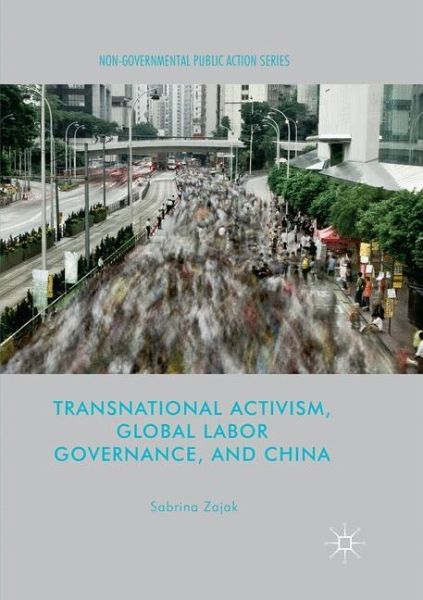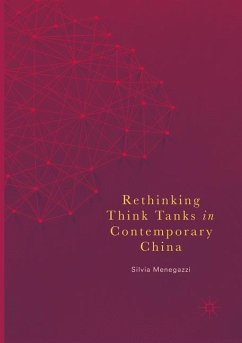
Transnational Activism, Global Labor Governance, and China
Versandkostenfrei!
Versandfertig in 6-10 Tagen
76,99 €
inkl. MwSt.
Weitere Ausgaben:

PAYBACK Punkte
38 °P sammeln!
This book explores rising labor unrest in China as it integrates into the global political economy. The book highlights the tensions present between China's efforts to internationalize and accept claims to respect freedom of association rights, and its continuing insistence on a restrictive, and often punitive, approach to worker organizations. The author examines how the global labor movement can support the improvement of working conditions in Chinese factories. The book presents a novel multi-level approach capturing how trade unions and labor rights NGOs have mobilized along different path...
This book explores rising labor unrest in China as it integrates into the global political economy. The book highlights the tensions present between China's efforts to internationalize and accept claims to respect freedom of association rights, and its continuing insistence on a restrictive, and often punitive, approach to worker organizations. The author examines how the global labor movement can support the improvement of working conditions in Chinese factories. The book presents a novel multi-level approach capturing how trade unions and labor rights NGOs have mobilized along different pathways while attempting to influence labor standards in Chinese supply chains since 1989: within the ILO, within the European Union, leveraging global brands or directly supporting domestic labor rights NGOs. Based on extensive fieldwork in Europe, the US and China, the book shows that activists, by operating at multiple scales, were on some occasions able to support improvements over time. It also indicates how a politically and economically strong state such as China can affect transnational labor activism, by directly and indirectly undermining the opportunities that organized civil societies have to participate in the evolving global labor governance architecture.














